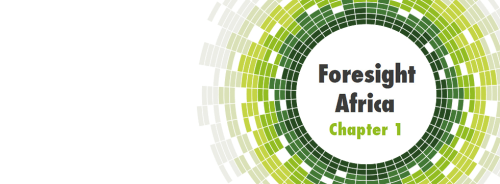Below is a viewpoint from Chapter 1 of the Foresight Africa 2017 report, which explores six overarching themes that provide opportunities for Africa to overcome its obstacles and spur inclusive growth. Read the full chapter on mobilizing financial resources here.
 As we begin a new year, calls for forecasts on what’s at stake for Africa in 2017 keep pouring in. Predicting the near future for a continent as diverse as Africa is a perilous endeavor; one I usually stay away from. This year is no exception. With economic growth in sub-Saharan Africa falling in 2016 to 1.5 percent—its lowest level in over two decades—pundits have been quick to point out that Africa is no longer rising.
As we begin a new year, calls for forecasts on what’s at stake for Africa in 2017 keep pouring in. Predicting the near future for a continent as diverse as Africa is a perilous endeavor; one I usually stay away from. This year is no exception. With economic growth in sub-Saharan Africa falling in 2016 to 1.5 percent—its lowest level in over two decades—pundits have been quick to point out that Africa is no longer rising.
Times remain tough for sub-Saharan Africa with risks to the economic outlook remaining tilted towards the downside. But in a world full of uncertainty, African countries are faced with a unique opportunity to implement policies that matter.
For the region’s largest economies and other commodity exporters came the realization that we can no longer depend on commodities. In fact, we never should. The reason is simple: Ample financing in times of high commodity prices have often delayed structural reforms. While commodity exporters have begun to address fiscal vulnerabilities and rebuild policy buffers, their efforts will take time.
For the economic juggernauts of sub-Saharan Africa, economic diversification is no longer an option, improving the non-resource tax systems is a must, and enhancing agricultural productivity is not an outdated concept. Consider this: Higher productivity would not only raise the incomes of farmers, it would also free up resources, such as labor, for other economic sectors.
The big lesson from the downturn is that good policies make a difference. Which brings me to an important point: Sub-Saharan Africa is growing at diverging speeds.
The big lesson from the downturn is that good policies make a difference. Which brings me to an important point: Sub-Saharan Africa is growing at diverging speeds. While some countries are struggling, over a quarter of the countries in the region continue to experience solid growth. But here comes the catch: As noted in this year’s Africa’s Pulse, our latest analysis of issues shaping Africa’s economic future, countries that are showing signs of resilience tend to have stronger fiscal and monetary policies, better business regulatory environments, more effective public institutions, more diversified export structures, and not much oil.
For African countries, the time has never been better to move beyond business as usual and invest in the future. But I remain optimistic about prospects for a new model of high and inclusive growth. With the right policies, its ability to leapfrog development hurdles, and the ingenuity of its people, Africa can defy the odds.






Commentary
Foresight Africa viewpoint: The year of Africa
January 19, 2017